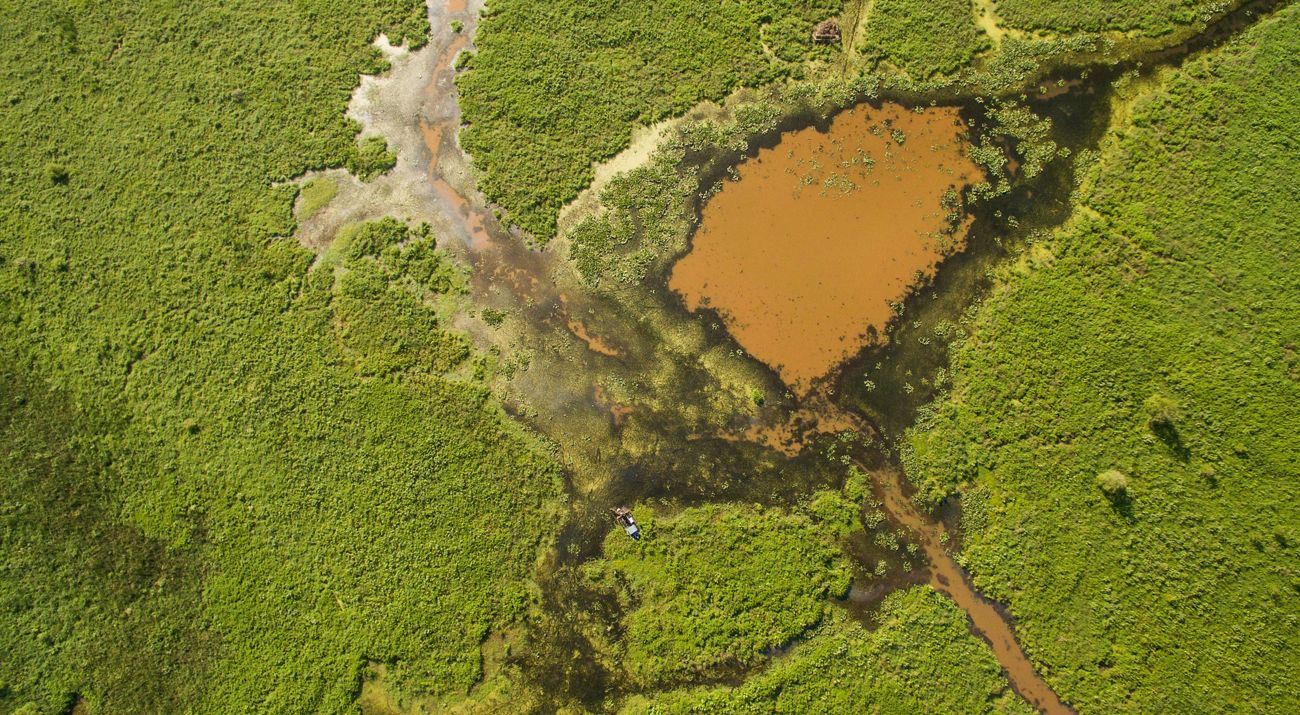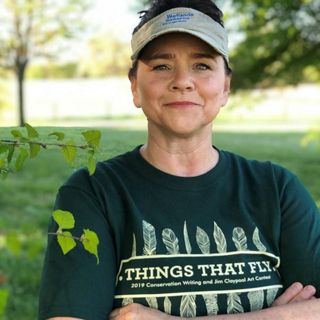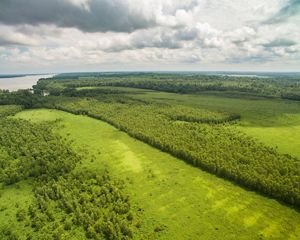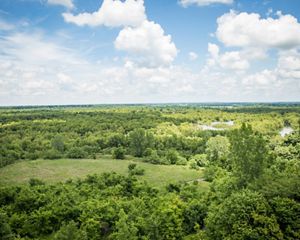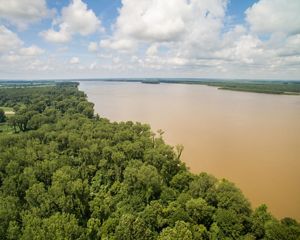Helping People Help the Land
Learn how TNC is supporting Donna Gilland's work with farmers to put more land into conservation.
Donna Gilland learned to love the outdoors as a child on her family’s working farm in Allensville, Kentucky. One of six children, she grew up exploring the farm from sunlight to dark.
“Whether it was doing chores or just exploring, from a young kid I just loved being outside,” she says.
Gilland majored in agriculture at Western Kentucky University, finding comfort in the subject she knew best. She began her career by working for the U.S. Department of Agriculture (USDA) Farm Service Agency.
“The Farm Service Agency was great,” she says. “But the Natural Resources Conservation Service was next door. After talking to the staff in the office and learning more about the agency, I knew that was where I belonged."
Helping Farmers
As part of the Natural Resources Conservation Service (NRCS) Wetlands Reserve Easement Program, Gilland is able to work with farmers one on one. She says her job embodies the NRCS motto, “helping people help the land.”
“We’re trying to help farmers with their conservation issues, such as erosion and water quality,” she says. “Many farmers also have production concerns on acres that are wet or frequently flooded.
It’s that poorly drained land that Gilland helps farmers with in her role as an NRCS resource conservationist and coordinator for the easement team in Mayfield, Kentucky. Her team serves eight counties in the Purchase region, with about 160 easements totaling just over 24,000 acres. They consult with farmers on areas of their property that stay wet during the year and don’t produce crops well.
“We’re taking the areas that hang wet or are frequently flooded, and restoring those back to trees, something that was historically there,” Gilland says. “In Kentucky, it’s going to be bottomland hardwood trees. The land will be out of production, and it will be a protected wetland forever.”
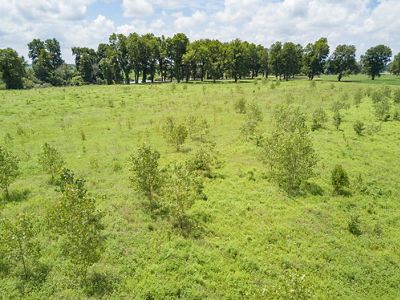
Restoring Wetlands
Gilland’s work is important because these frequently flooded areas are difficult places for farmers to be successful in producing an annual crop. Also, because these areas frequently flood, they can contribute to poor water quality, carrying excess nutrients like nitrogen and phosphorous back into nearby rivers and streams. Taking these areas out of crop production and restoring their hydrology and vegetation helps to filter water and prevent this pollution from occurring.
“I like to tell people that wetlands are like a sponge or a coffee filter,” Gilland says. “They soak up water, can hold water longer, and they can filter the pollutants that can be coming from the watershed. As the water leaves the wetlands, it’s cleaner.”
Landowners apply for the Wetlands Reserve Easement Program with Gilland’s team, who evaluates the application and gives it a score. As funding becomes available, the highest-scoring projects will receive an offer of enrollment into the easement program. The landowner receives a payment from NRCS to place the easement on the land, taking it out of agricultural production. The whole process can take several years before restoration can begin, but Gilland says at the end of the process all the work is worth it.
“One of the best parts of my job is when the landowner starts chatting about the increase in the deer and the ducks,” Gilland says. “They’re happy with the project. This really can be a win-win for wetland restoration and the landowners.”
Quote: Donna Gilland
Wetlands are like a sponge or a coffee filter... As the water leaves the wetlands, it’s cleaner.
Partnering with TNC
The Nature Conservancy first partnered with Gilland’s team in 2011. Since then, TNC has assisted with enrolling more than 7,300 acres of land into restoration programs. TNC has helped by securing due diligence services for NRCS, reaching out to landowners directly, and providing matching funds to bring Wetland Reserve Enhancement Partnership (WREP) funding to Kentucky.
“I have to say, I’d never worked with TNC before, and I wasn’t sure,” Gilland says. “How was this going to work? Are our objectives the same?”
Gilland says she was impressed with TNC staff. She was particularly grateful that Shelly Morris, the Kentucky chapter’s director of floodplain priorities, had expertise in wildlife biology and wetlands. This complemented Gilland’s knowledge of agriculture well.
“Each and every year, this partnership has grown to be one of the most effective partnerships of acquisition and restoration of these easements,” Gilland says. “TNC has helped NRCS grow the program. It’s been a tremendous partnership.”
